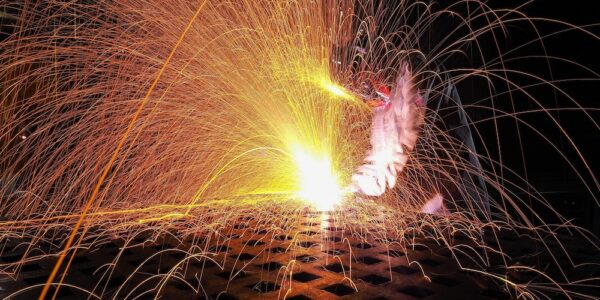Automation, robotics, and virtual reality are all well-entrenched in industrial settings. Factories, printing operations, and the like are full of robots and the Industrial Internet of Things has cut labor costs and helped many companies cope with the ongoing labor shortage.
What about AI and machine learning? We hear about it working toward making robots better able to sort and pack items (like fresh produce, meat, and online orders from consumers) that require an ability to distinguish among many different objects. Beyond that, most applications haven’t gotten much beyond proof of concept.
What might be possible in the future? Lots of things!
Welding
Mike Boyle in New Equipment Digest offered the example of welding. With welders becoming harder to find, the need for automation in the field is becoming acute. AI could help.
For example, AI can be used to:
- Automate welding tasks. AI can be used to control welding robots, which can automate many of the repetitive and dangerous tasks involved in welding. This can free up human welders to focus on more complex tasks, and it can also improve safety by reducing the risk of human error.
- Optimize welding parameters. AI can be used to optimize welding parameters, such as the welding current, voltage, and speed. This can improve the quality of welds and reduce the risk of defects.
- Inspect welds. AI can be used to inspect welds for defects. This can help to ensure the quality of welds and prevent costly failures.
- Predict weld failures. AI can be used to predict weld failures. This can help to prevent failures before they occur, and it can also help to identify the root cause of failures so that they can be prevented in the future.
Overall, AI has the potential to revolutionize the welding industry by making it more efficient, safe, and reliable.
Automating expert knowledge
Every company has (or needs) that long-time expert who just knows everything about their specialty. You ask a question or bring up a problem, and they can almost instantly intuit the solution. Industrial AI takes that deep knowledge and automates it, making it available to everyone and reducing the company’s dependence on that super star.
To do this, however, there must be a large dataset. Collecting the data and making it usable, turning it into actionable insights rather than just an overwhelming collection of facts — that’s the challenge.
In one area, specifically your Indramat motion control systems, you can call (479) 422-0390 and benefit right away from human expertise. We specialize in Indramat legacy drive and control systems, providing factory repair and reman for your Indramat components. Call us any time you need support or service for Indramat units.
Image courtesy of Pixabay



